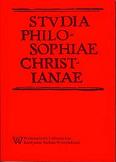Natura przedmiotu spostrzeżenia zmysłowego w ujęciu Thomasa Reida
The nature of the object of perception in Thomas Reid’s philosophy
Author(s): Dariusz KucharskiSubject(s): Philosophy
Published by: Wydawnictwo Naukowe Uniwersytetu Kardynała Stefana Wyszyńskiego w Warszawie
Keywords: Reid Thomas; Scottish philosophy; common sense; perception; material substance; skepticism; belief
Summary/Abstract: The philosophy of Thomas Reid, the founder of the Scottish School of Common Sense, was intended by its author to be a reaction against the so-called, ‘way of ideas’, a philosophical position that took the representationalist theory of perception. Such theory led, according to Reid, inevitably to scepticism about (amongst other things) the material nature of an object of perception. The most striking example of a skeptical system of this sort is, for Reid, philosophical views of David Hume. The aim of this paper is to show how Reid argued against representationalism and defended the conviction that the nature of objects of perception is material and, as such, these objects are independent in their existence of perceiving consciousness. To reach this goal Reid creates a philosophical system which is founded on the concept of ‘common sense’. The very concept was defined by Reid in such a way that it is a sort of cognitive faculty which is also a source of many fundamental beliefs of ‘mankind’. These beliefs do not need to be proven, they are like axioms in mathematics and lay foundations of any other knowledge. There are two types of principles of common sense – of necessary truths and, of contingent truths. The belief of the material nature of objects of perception is one of the contingent truths, so it is an intrinsic part of common sense. And any discussion with that sort of belief is impossible. They are always correct because we know them intuitively, there is no need for any reasoning to accept their validity. Needless to say Reid’s position about common sense is not free of problems, one of them being the question about the source of ‘necessity’ of common-sense beliefs. This problem is a subject for another paper, but one of the possible answers could be a logical rather than psychological interpretation of the principles of common sense.
Journal: Studia Philosophiae Christianae
- Issue Year: 48/2012
- Issue No: 3
- Page Range: 55-75
- Page Count: 21
- Language: Polish

